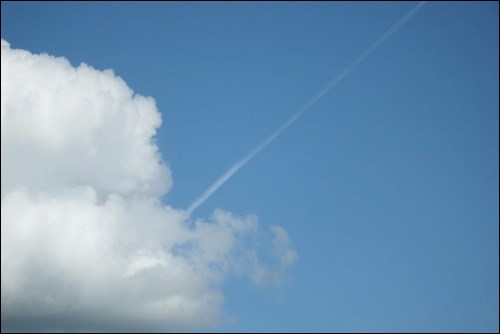What the electronic media refer to as “breaking news” is served up in repetitive detail until the next “breaking news” breaks. During its time on the flashing screens each featured story appears to be the most important event in the world. Citizens who enter the cyber-world need to cling to a sense of proportion. We need to avoid being led astray by the blathering of Donald Trump and the manipulative mania of Benjamin Netanyahu — and by the host of others who support or oppose them — as well as the experts stumbling all over themselves in presenting their analyses of what is happening.
The biggest news story broke years ago. It is the story of global warming, climate change and the degradation of our home planet’s environment. It is the threat which, unchecked, will make life a horror for future generations.
Nuclear disasters, either through war or by accident, appear to be the second most dangerous threat faced by the inhabitants of planet Earth. The opposition to the agreement designed to delay the year upon which Iran joins the nations that have nuclear weapons faces bitter opposition in both the U.S. congress and in Israel. Does this make sense? Let’s look at the record. There are nine states that have nuclear weapons. The ones forming the “nuclear club”, wherein possession of the weapons is acknowledged and legal, are the United States, Russia, France, United Kingdom and China.
Pakistan, India, Israel and North Korea are not in the legal club. Of these, only North Korea appears to be attempting to develop intercontinental ballistic missiles that can cross an ocean to reach targets in the United States.
The other four “illegal” countries have missiles of shorter range in their arsenals. To use even one in a conflict with a nearby country is to invite destruction. This is the situation in both the Indian sub-continent and the Middle East. It is an open secret that the only nation in the African continent that has missiles armed with nuclear warheads is Israel. The missiles are not stockpiled. They are deployed. Submarines carrying these missiles are constantly at sea.
We would do well to remember that Second World War ended with the dropping of two atom bombs on Japan, an ocean away from the American president who ordered the attacks. There have been armed conflicts since the Second World War involving other nations. None of them has used a nuclear weapon.
There are probably more than 15,000 nuclear warheads in the world, but only a much smaller number are deployed. Israel is in less danger of a nuclear attack from any nation, including Iran, than it is of seeing its atmosphere and territory poisoned by fallout from a nuclear accident. Since 1952, there have been 33 accidents at atomic power plants. Four had consequences beyond a power plant and its immediate area. The worst was at Chernobyl, Ukraine, in 1986. More uranium-fuelled power plants may come on line, with more risks of lethal radiation in more places.
A Republican presidential hopeful called Huckabee made the extreme statement that the atomic control agreement with Iran is tantamount to sending the people of Israel to the doors of the gas ovens. Wrong. Warring states in the region will use conventional weapons. Between 1987 and 2014, in the conflict with Palestinian militants, 1,512 Israelis were killed. Dead Palestinians numbered 8,441. Israel will survive, no matter what takes place in Iran. It has powerful friends in Washington.



